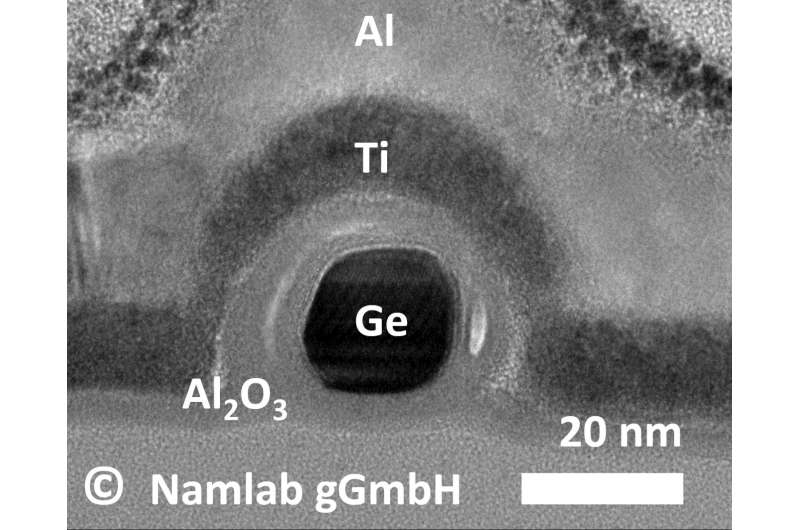Germanium outperforms silicon in energy efficient transistors with n- und p- conduction

A team of scientists from the Nanoelectronic Materials Laboratory (NaMLab gGmbH) and the Cluster of Excellence Center for Advancing Electronics Dresden (cfaed) at the Dresden University of Technology have demonstrated the world-wide first transistor based on germanium that can be programmed between electron- (n) and hole- (p) conduction.
Transistors based on germanium can be operated at low supply voltages and reduced power consumption, due to the low band gap compared to silicon. Additionally, the realized germanium based transistors can be reconfigured between electron and hole conduction based on the voltage applied to one of the gate electrodes. This enables to realize circuits with lower transistor count compared to state-of-the-art CMOS technologies.
Today´s digital electronics are dominated by integrated circuits built by transistors. For more than four decades transistors have been miniaturized to enhance computational power and speed. Recent developments aim to maintain this trend by employing materials having higher mobility than silicon in the transistor channel, like germanium and indium-arsenide.
One of the limitations in using those materials is the higher static power loss in the transistor´s off-state, also originating from their small band gaps. The scientist team around Jens Trommer and Dr. Walter Weber from NaMLab in cooperation with cfaed succeeded in solving this issue by conceiving the germanium-nanowire transistor with independent gating regions.
Dr. Weber who leads cfaed's Nanowire Research Group points out: "For the first time the results demonstrate the combination of low operation voltages with reduced off-state leakage. The results are a key enabler for novel energy efficient circuits."
The work has been published in the journal ACS Nano.
More information: Jens Trommer et al, Enabling Energy Efficiency and Polarity Control in Germanium Nanowire Transistors by Individually Gated Nanojunctions, ACS Nano (2017). DOI: 10.1021/acsnano.6b07531
Journal information: ACS Nano
Provided by Dresden University of Technology



















